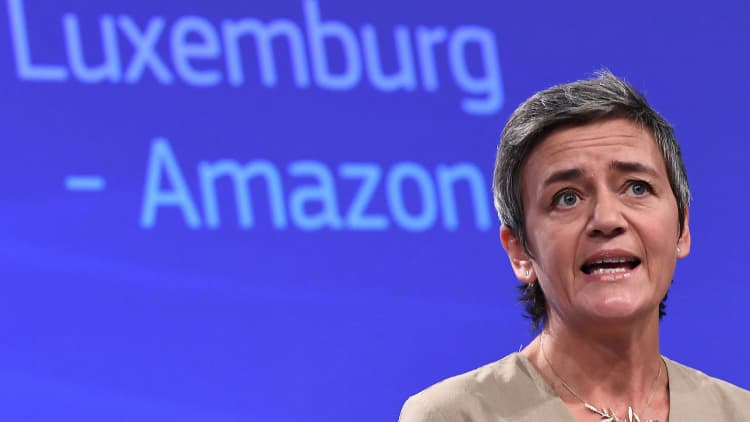If you're an internet user in Europe, chances are the way you use platforms like YouTube and Facebook could be about to shift drastically in the coming years.
The European Parliament recently passed sweeping changes to the EU's almost two decades-old copyright rules, and critics are worried it could be a misfire that ultimately results in online censorship.
The aptly-named directive on "Copyright in the Digital Single Market" is all part of the bloc's efforts to update its laws to reflect the challenges posed by the age of information.
First introduced by the European Commission in 2016, the new copyright law contains two particular sections that have attracted heavy scrutiny from activists and internet giants alike: Articles 11 and 13 (or 15 and 17 as they're now numbered after a recent update).

The former is aimed at giving news organizations more protections to ensure they're paid fairly for the dissemination of their stories online. Services like Google News will be under particular pressure, as the rules will mean tech firms need to agree to licenses with publishers to share their articles.
In fact, Google has gone as far as to suggest that it may even be forced to pull its news aggregation platform from Europe as a result of the new legislation.
But the biggest source of worry for the people and companies protesting the new measures by far is Article 13. Currently, the onus is on rightsholders to flag copyright violations with tech firms, who can then take action to pull content if they find it's in breach of copyright.
With the new rules, liability now lies with tech giants to ensure their platforms aren't open to copyright breaches. Detractors have said this would lead to controversial pre-filter systems, where everything from memes to GIFs are blocked from online platforms.
For its part, the European Parliament has said this won't be the case, and that memes, GIFs, hyperlinks and snippets of articles will still be able to be shared freely. But that hasn't allayed the concerns of tech companies, freedom of speech campaigners and regular internet users themselves.
YouTube already has a system called Content ID, whereby it uses an algorithm to detect and remove copyright violations. Some users on the platform have argued that this system is currently open to abuse, and fear more stringent filtering measures could could make matters worse.
And Google's video sharing site isn't the only company at risk. EDiMA, a tech lobbying group representing the company and others including Facebook and Twitter, claims it will affect a wide array of companies from e-commerce platforms like Amazon to dating services like Tinder.
"Instead of merely taking down infringing content specifically identified to it, a service provider will have to prevent the upload of that content in the first place," Kathy Berry, an intellectual property lawyer at Linklaters, said. "This could therefore have very significant ramifications for those providing digital services in the EU."
The whole episode has been characterized as effectively a battle of "Hollywood vs. Silicon Valley." Artists and media firms argue that the directive is needed as they're losing out from the unfettered sharing of their intellectual property on online platforms.
Tech giants like Google and Twitter, meanwhile, are concerned the reforms will do more damage to the web than good. Google argues the new law will "hurt Europe's creative and digital economies," while Twitter says it's concerned about the potential impact on the "open, creative and conversational nature of the internet."
As for Facebook, the social media giant says it will work with all relevant parties to align its own rules with that of EU member states.
The next step for the directive is ratification from the European Council, the institution that brings together different EU governments. If it passes that stage, EU member states will then have up to two years to figure out how to implement it.


